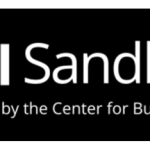Tyler Kight (MSBA ’18) is an alumnus from the inaugural cohort of the MSBA Program at UW Tacoma. Coming from an undergraduate background in Biochemistry and previous work in the healthcare industry, Tyler and his team of MSBA classmates worked closely with Stellar Industrial Supply to complete their year-long Applied Project. Their project focused on developing predictive modeling using k-means clustering that identified cross/up-sell opportunities, as well as a supplemental Power BI Dashboard that segmented customers based on profitability in order to help guide strategic decision making. We recently caught up with Tyler, who now holds a position as a Project Manager at Provoke Solutions in Seattle, WA.
In a few sentences, tell us about your life before the MSBA program.
Before joining the MSBA program, I had a rather unorthodox journey to becoming a project manager in tech. I studied Biochemistry in 2011 with a desire to go into public health, followed by 2 years of Peace Corps service in Kenya. During this experience, I discovered a love for project management when I learned about the planning, initiative, and execution required to make even small public health projects successful. Coming back to Seattle in 2014, I worked as a project coordinator in healthcare for a while, where I realized that the soft skills I learned in Kenya needed to be supplemented with more technical skills if I wanted to get to next level in my career.
What led you to choose the Master of Science in Business Analytics program at the University of Washington Tacoma?
A friend of mine studying in the MBA Program at UW Tacoma recommended the MSBA program to me after talking with the program founder, Dr. Haluk Demirkan, about his plans for the 1st MSBA cohort. The program was the perfect mix of project management best practices, data modeling, statistical analysis fundamentals, and other skills that were a good fit for someone like me who wasn’t looking for a dedicated data science/technical role, but wanted to understand enough to work well with the architects and developers who do. In addition, the mix of online learning and weekend courses was a great match for a full-time professional like myself who couldn’t afford to take time off of work to continue my education.
What were some of the highlights and challenges of your graduate experience?
Working directly with local businesses for our hands-on Applied Project was a lot of fun, as it enabled us to apply the education we were getting in the classroom to real life problems that needed solutions. I also enjoyed learning alongside such a diverse group of students, coming from a variety of backgrounds and skillsets, as we all brought our own perspectives to the work and gained more from it. Challenges included juggling my personal, professional, and academic lives, as the program expected a lot from its students and I needed to manage my time carefully to keep my work-school life balanced.
How did you land your current role?
Near the end of the program, I began applying for project management roles in the tech sector, which was a big jump for me from healthcare as I did not have SDLC or Agile experience. The data analysis skills I gained from the program, as well as the complexity of our Applied Project, were important new items on my resume to help me stand out as a motivated candidate willing to learn new skills. I don’t think I would have gotten the responses I did if I didn’t go through the MSBA program. I applied to around 30 jobs at the time and went through interviews for about 10 of those. I eventually narrowed my options to two companies, and I ended going with my current employer because they were a better culture fit and I knew it would be a great environment to learn and apply Agile/Scrum best practices in software development.
Where do you see yourself going from here?
The MSBA program has helped me transform my career and jump to a completely different industry by building upon my previous experience and helping me “learn how to learn.” Working in Tech requires being a life-long student, as technology is always changing and one must keep up with those changes in order to stay competitive and on the cutting edge. The education I received as part of the MSBA program was less focused on direct teaching of skills, and more focused on challenging me to use the resources available to me to learn the skills most applicable to my career right now.
Going from here, I anticipate continuing my work in Agile software product delivery and Azure cloud solution projects for years to come. This is the role I’ve been working toward for many years, and I plan to continue developing my skills and improving as a PM for the foreseeable future.
What advice would you offer to an incoming MSBA student?
If I could say only one thing to new students – you will receive what you put into this program. This is a program designed for folks with initiative and a hunger to learn, and you will succeed if you apply yourself and go above and beyond learning answers to the questions a professor asks. Make sure to manage your time wisely so that you can accomplish all of the reading, coursework, Applied Project work, and technical application required to truly transform your skillset and supercharge your career.
Outside of work, what is your favorite thing about living in Seattle?
When I’m not stressing over an upcoming release, I like to play guitar, play with my Shiba Inu, go to breweries and shows with friends, and enjoy the unique experiences the PNW has to offer – the Greater Seattle area is a beautiful place with so much to explore and see.
MSBA Alumni Spotlight Blog Posts are contributed by Ellen Lambert Hermansen, M.A. (MBA Candidate) – Graduate Advisor – MSBA and MBA Programs. Please contact Ellen at elbelle@uw.edu if you’d like to be featured in an upcoming MSBA Alumni Spotlight blog post.






